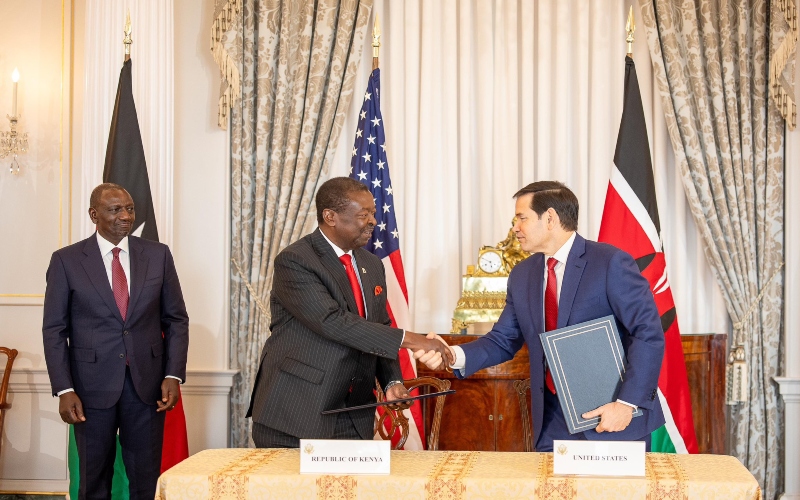Africa launches first-ever climate commitment implementation index to track progress

Notably, Kenya ranked second in the inaugural Index rankings, with a score of 70.8, just behind Zimbabwe, which topped the list at 71.5.
In a landmark move to enhance climate accountability, African countries will now be ranked based on how effectively they deliver on their climate pledges under the Paris Agreement.
This follows the launch of the first-ever continental Nationally Determined Contributions (NDC) Implementation Index to monitor progress across 12 Sub-Saharan nations.
More To Read
- 2025 set for second-hottest year on record
- Nyeri climate change activist Truphena Muthoni attempts 72-hour tree-hugging record
- UN’s Guterres vows to push for Palestine two-state solution, says he will ‘not shut up’
- AfDB grants full debt relief to Somalia after decades of economic turmoil
- Green economy now second-fastest global growth frontier, value hits Sh646.4 trillion - report
- Supporting Africa’s drylands: Insights from the pastoralists who call them home
These are: Botswana, Côte d’Ivoire, Ethiopia, Ghana, Kenya, Namibia, Nigeria, Sierra Leone, Tanzania, Uganda, Zambia and Zimbabwe.
Developed by a coalition of African climate and policy organisations, including the African Technology Policy Studies Network (ATPS), the Pan African Climate Justice Alliance (PACJA), and the West African Green Economic Development Institute (WAGEDI), the Index is supported by the African Development Bank’s Africa Climate Change Fund (ACCF).
It evaluates countries across five key areas: governance, finance and technology transfer, adaptation, mitigation, and measurement, reporting and verification (MRV).
Notably, Kenya ranked second in the inaugural Index rankings, with a score of 70.8, just behind Zimbabwe, which topped the list at 71.5.
Ethiopia scored 64.1 to take third place, while Ghana and Tanzania completed the top five with scores of 60.5 and 59.0, respectively.
According to the Index, scores below 40 are rated as Poor, 40–54 as Average, 55–69 as Good, 70–79 as Satisfactory, and scores of 80 and above as Outstanding.
The initiative comes a decade after the adoption of the Paris Agreement and aims to bring transparency and accountability to Africa’s climate commitments.
“This project is important because, as countries prepare their next round of NDCs, they need to independently assess progress and identify gaps. Only then can they set sound, evidence-based targets for NDC 3.0,” said Rita Effah, ACCF Coordinator at the African Development Bank (AfDB).
The programme also focuses on capacity building, with government officials and climate officers trained in data collection, evaluation and reporting.
Notably, the project also supports the African Union’s Agenda 2063 and the UN Sustainable Development Goal 13 (Climate Action).
According to AfDB, while some countries still face challenges of data infrastructure and long-term planning, the initiative marks a step toward greater transparency and accountability in Africa’s climate governance.
Looking ahead, partners aim to expand the platform beyond the initial 12 countries, enabling a continent-wide approach to tracking NDC implementation.
Top Stories Today












































